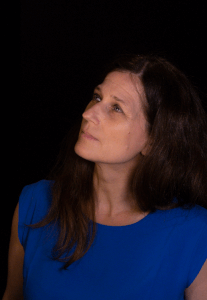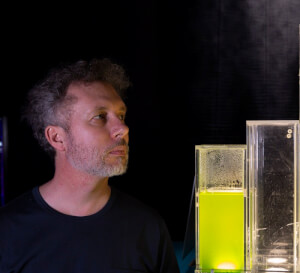THE CAMILLE DIARIES.
New Artistic Positions on M/otherhood, Life and Care
The exhibition and the symposium The Camille Diaries. Current Artistic Positions on M/otherhood, Life and Care discuss new artistic works by eleven international women and non-binary artists (installations, video, objects, performance). Reflecting on the current conditions of our world (environmental changes, gender aspects, biopolitics, etc.), the artists' positions propose an 'aesthetics of care' as the basis for inter-species coexistence. Here, the planet is understood as a symbiotic web in which we are all entangled with one another (humans, plants, animals, environment) - on molecular, organic, ethical and biopolitical levels. The artistic positions investigate reproductive mechanisms, biochemical connections between humans and nonhumans, and refer to alternative biomaterials as "source of life" in future times of scarcity and crisis.
The exhibition title "The Camille Diaries" alludes to the "Camille Stories" the final chapter of "Staying with the Trouble" (2016) by philosopher and biologist Donna Haraway, a speculative future where a dwindling human population replaces births with care between species. Each "Camille" cares for the genetic material of an endangered species (the monarch butterfly) by storing parts of that material in their own DNA. In the exhibition artists explore genetic and biochemical exchange between human and non-human, a both part of and remedy for the Anthropocene. Here the theme of biotechnological transfigurations of human bodies places the human being on the periphery and rather directs our full attention to other living beings. This creates - and this is central to the planned series of events - a basic understanding of other species and organisms from a feminist perspective.
Sonia Levy's 2-channel video installation For the Love of Corals is a cinematic inquiry that focuses on the daily labour of caring for endangered beings to resuscitate them from their imminent human-induced extinction. Mary Maggic's work milik bersama rekombinan explores the surreal landscape of an urban Indonesian river colonized by plastic, with toxic implications for nearby inhabitants. For their project Mammalga Naja Ankerfeldt and Baum & Leahy find inspiration in the life remediating abilities of the algae as well as ways of m/othering or making kin in algal family patterns. In Špela Petric's installation Phytoteratology, thale cress embryos have been grown in a bath of chemicals from the artist’s own body, resulting in a biochemical chimera with the artist as 'co-mother'.
Margherita Pevere's Wombs features scientific glassware hosting living bacterial colonies producing flesh-like biofilm, growing in a liquid environment infused with the artist's own hormones, and a photographic series. Ai Hasegawa proposes a transspecies act of motherhood in her work I Wanna Deliver a Dolphin... Nicole Clouston's artwork Mud (Berlin) takes the form of 12 rectangular, acrylic prisms filled with organisms growing from mud taken from Berlin's lakes and rivers. In Haem artist Cecilia Jonsson and scientist Rodrigo Leite de Oliveira have created a compass by deriving iron from the blood protein haemoglobin of donated human placentas. Meanwhile Tarah Rhoda's Ourglass is a tribute to the remarkable alliance between plants and animals through the photosynthesis and respiration.
The one-day symposium brought the artists together with researchers from the humanities and natural sciences into a critical dialogue. In the panels “M/others, wombs and placentas”, “Fluid Inheritance” and “Modes of care” we discussed current and alternative concepts. On the basis of the exhibit reflected approaches like "Collective survival" and "Arts of noticing" (A. Tsing), "Staying with the Trouble" (D. Haraway), and in particular “Bodies of water” connected to hydrofeminism (A. Neimanis).
Regine Rapp & Christian de Lutz
(Art Laboratory Berlin)
Exhibition: http://www.artlaboratory-berlin.org/html/eng-Camille-Diaries.htm
Symposium: http://www.artlaboratory-berlin.org/html/eng-Camille-Diaries-Symposium.htm
Back







